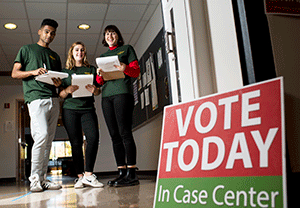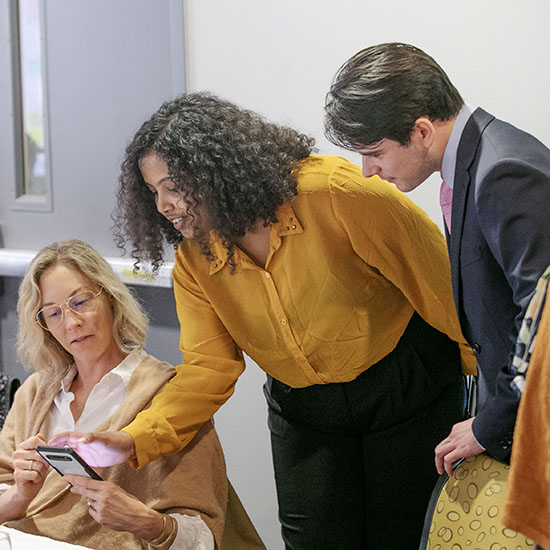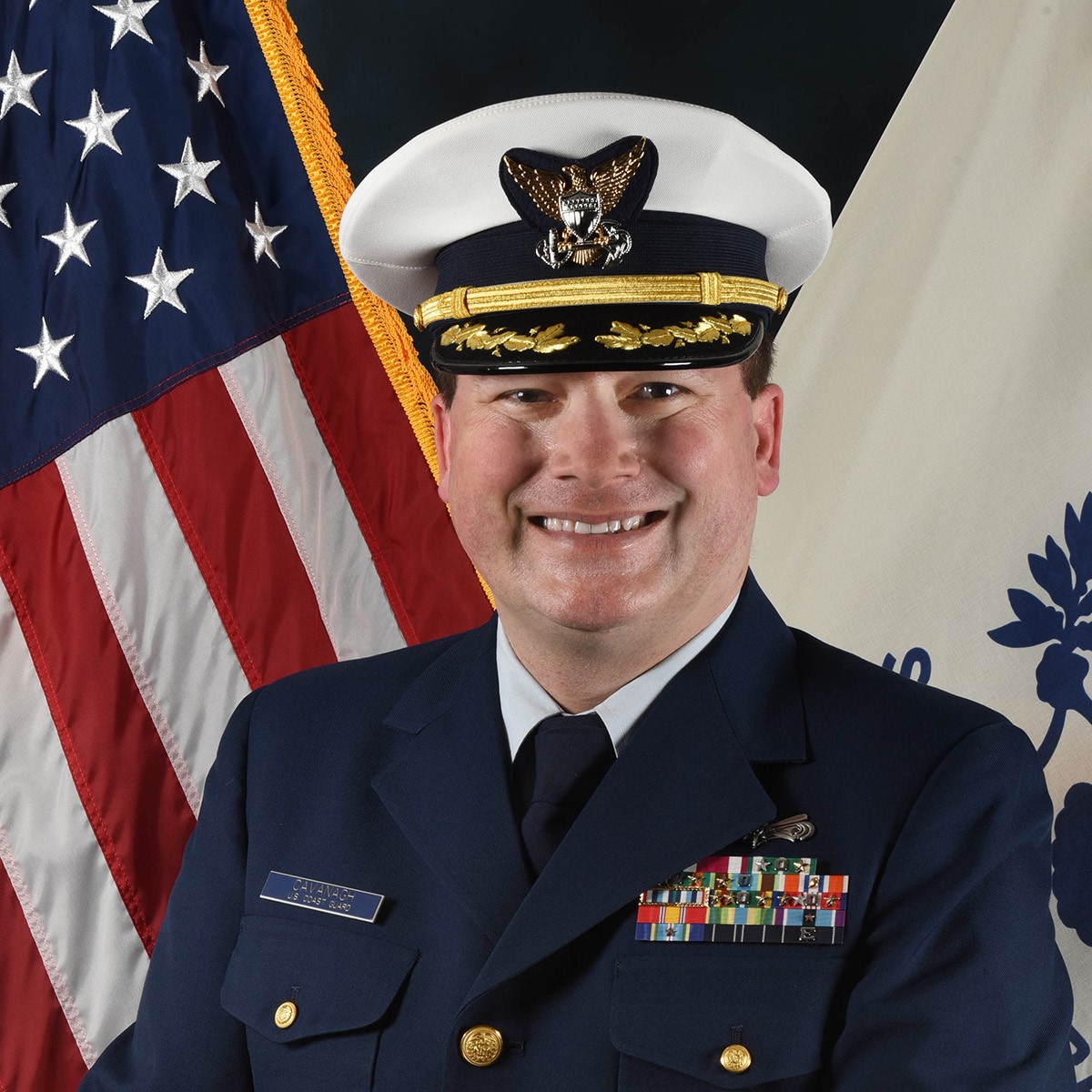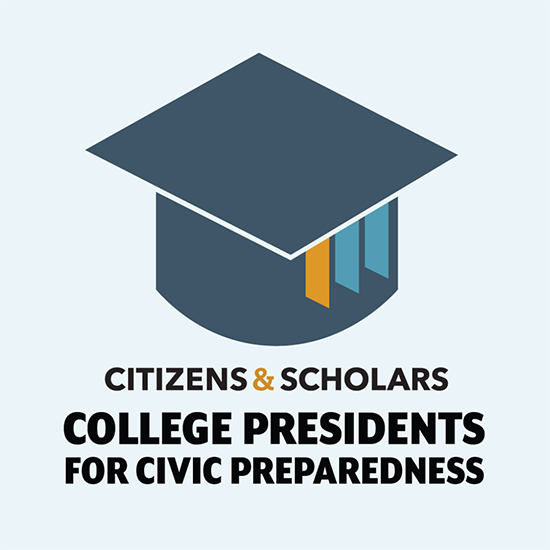What really happens at the polls?
"I expected the poll workers to be enthusiastic about democracy and well versed in the functions of voting, but often it seemed as if they hadn't been trained," remarks Izzy Fischer '18, a student observer at Saratoga-area polls on Election Day. Yet for Josh Wagner '17, having heard "horror stories about dysfunctional polling places and hourlong lines, I was surprised to see how smoothly almost everything went." They and fellow members of the "Election Research" and "Campaigns and Elections" courses, taught by political scientist Chris Mann, spent anywhere from five to 14 hours gathering data about polling places' wait times, parking, signage, and more.

Jackson Price '19, Esme Edwards '19, and Hannah
Fishman '19, ready to set out for research at Saratoga-
area polling stations.
Mann's research group began with readings and discussion regarding "how to define some slippery concepts around how to observe and what observations mean, because we wanted to make sure the observations would be objective and quantifiable," he explains. "This phase was like a course in social-science research methods." On Election Day, the students conducted their fieldwork using a poll-data-gathering app that Mann had fine-tuned with colleagues at MIT and Dartmouth.
For students from the "Campaigns and Elections" course, the poll-station research was just one option for their Election Day fieldwork requirement; some helped the League of Women Voters or volunteered for a candidate. As a former political consultant, Mann says, "While I can tell tales from the trenches, I want my students to get a firsthand feel for a campaign during those frantic final hours."
Rachael Thomeer '18 noticed how "each polling place had its own vibe. One had a TV on, with the news talking about the presidential race as people voted." Katie Hamilton '17 found "in the seven places we visited, there were no instructions, which led to some voter confusion" and even to "some poll workers casting ballots for voters." Over her long day, a big positive was "when all the poll workers clapped every time a first-time voter cast a ballot," while a negative came "when a voter saw our T-shirts and said, 'You guys are those lefties from Skidmore'—a really invalidating and hurtful comment."
Like many others, Hamilton says she was "extremely interested in the process after having gained knowledge on how the voting process is supposed to run from our 'Election Research' course." Thomeer adds, "After visiting the first few polling places, it became a lot easier to spot the characteristics we were there to observe and made the differences really stand out."
Wagner agrees and would do it again, "to look for some of the smaller things I may have missed the first time." He concludes, "Whether or not everyone has the opportunity and ability to go and vote is a different issue, but the actual function and design of most polling places is very accommodating. It was reassuring to see American democracy in action."
For some of his research Mann participates in the Cooperative Congressional Election Survey: Each of 60 member colleges gets a list of 1,000 randomly chosen voters across the country and polls them about the candidate traits they prefer, and then all colleges can pool their data so that each researcher has a 60,000-voter data set to analyze. Mann has studied voters' reasons for split-ticket voting and how it affects party campaigning, as well as the messaging, tactics, and effectiveness of voter mobilization work. In short, he says, "I'm interested in analytics-driven campaigning." Hear his take on recent electioneering in this podcast.


